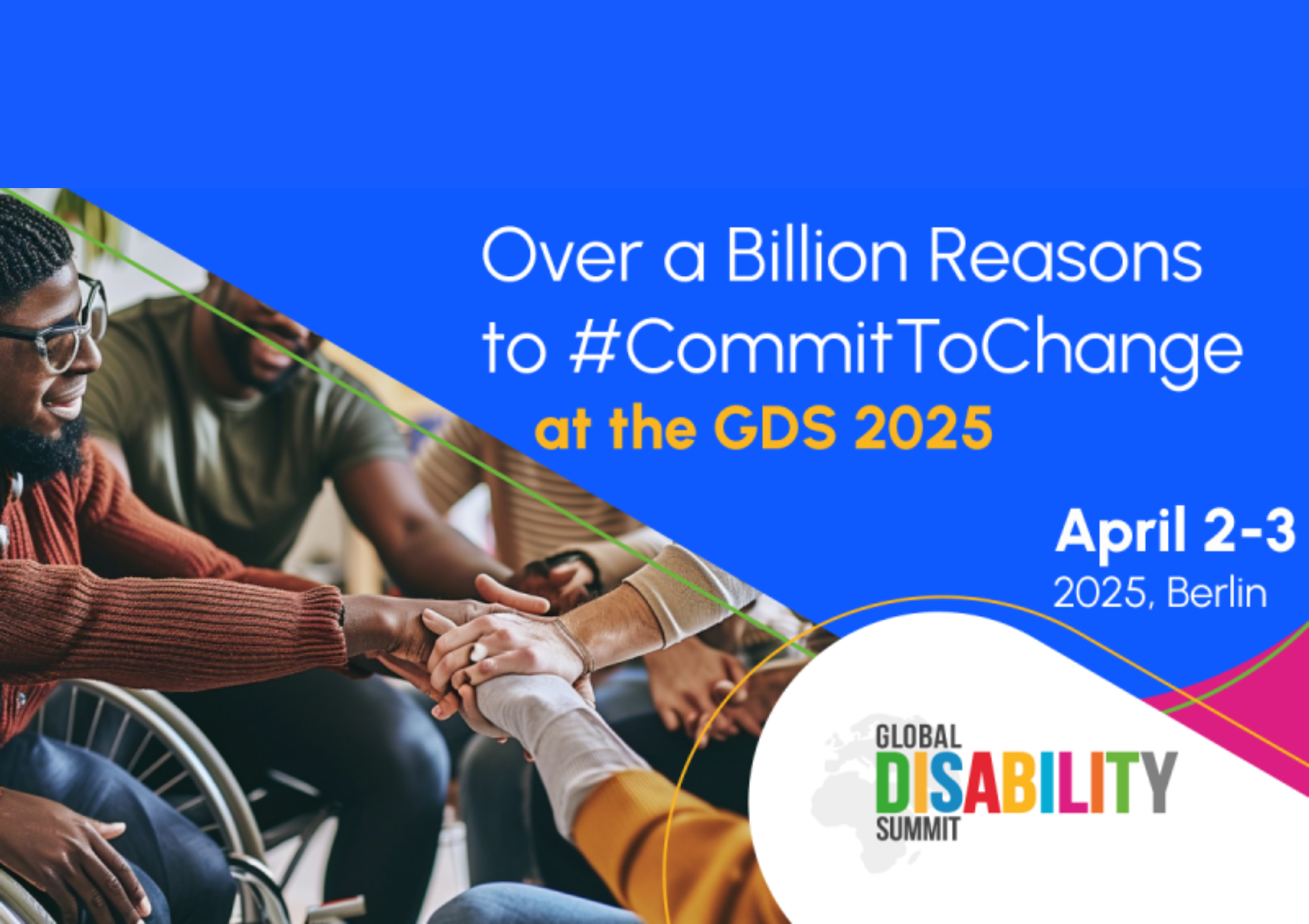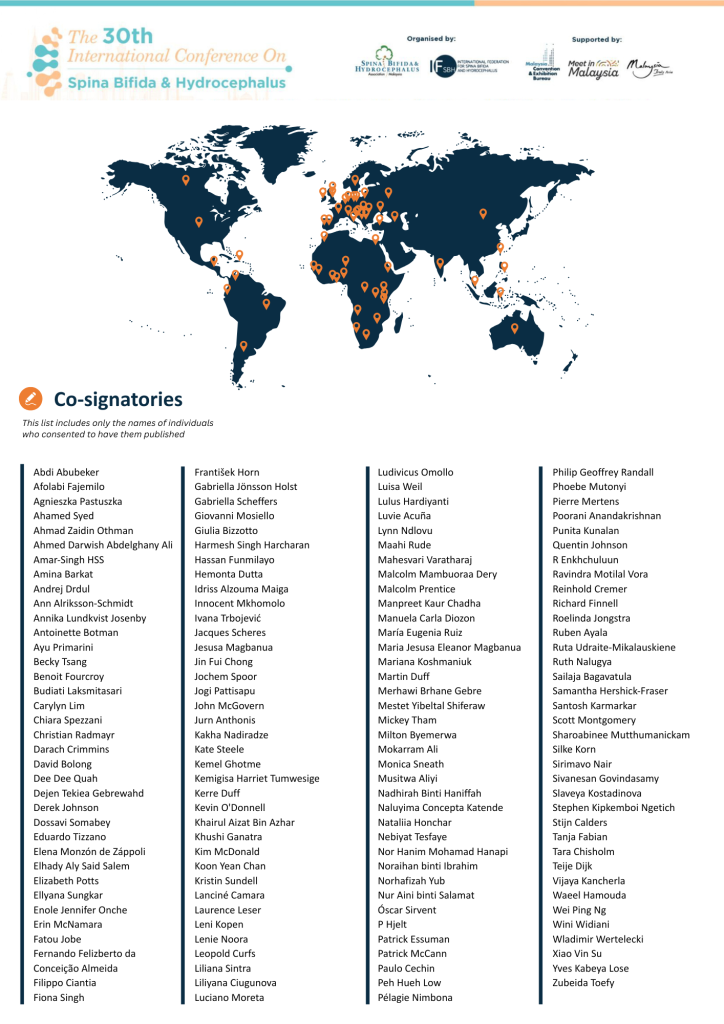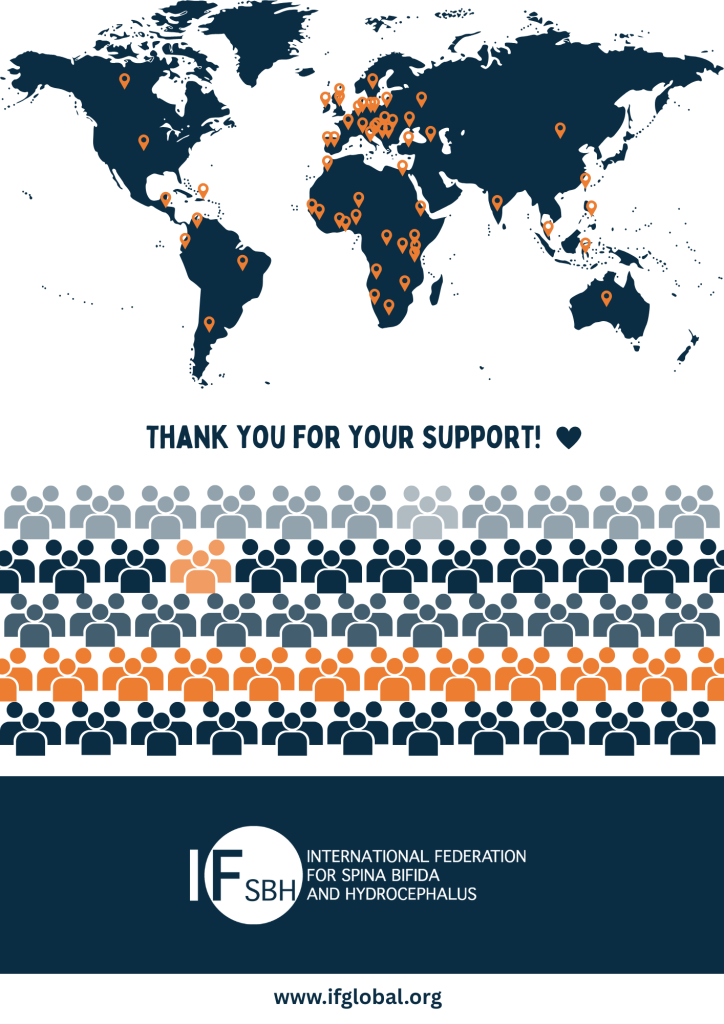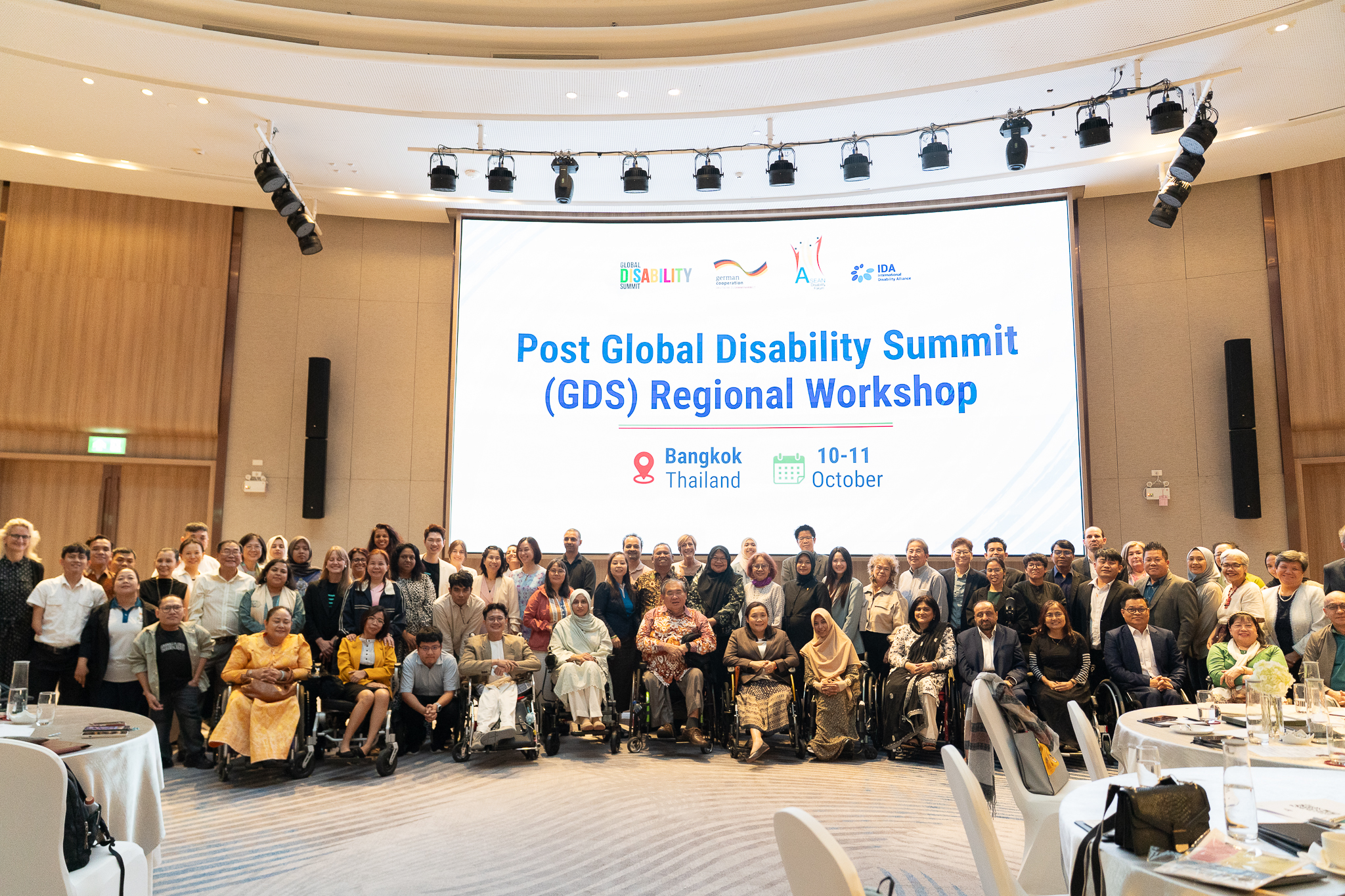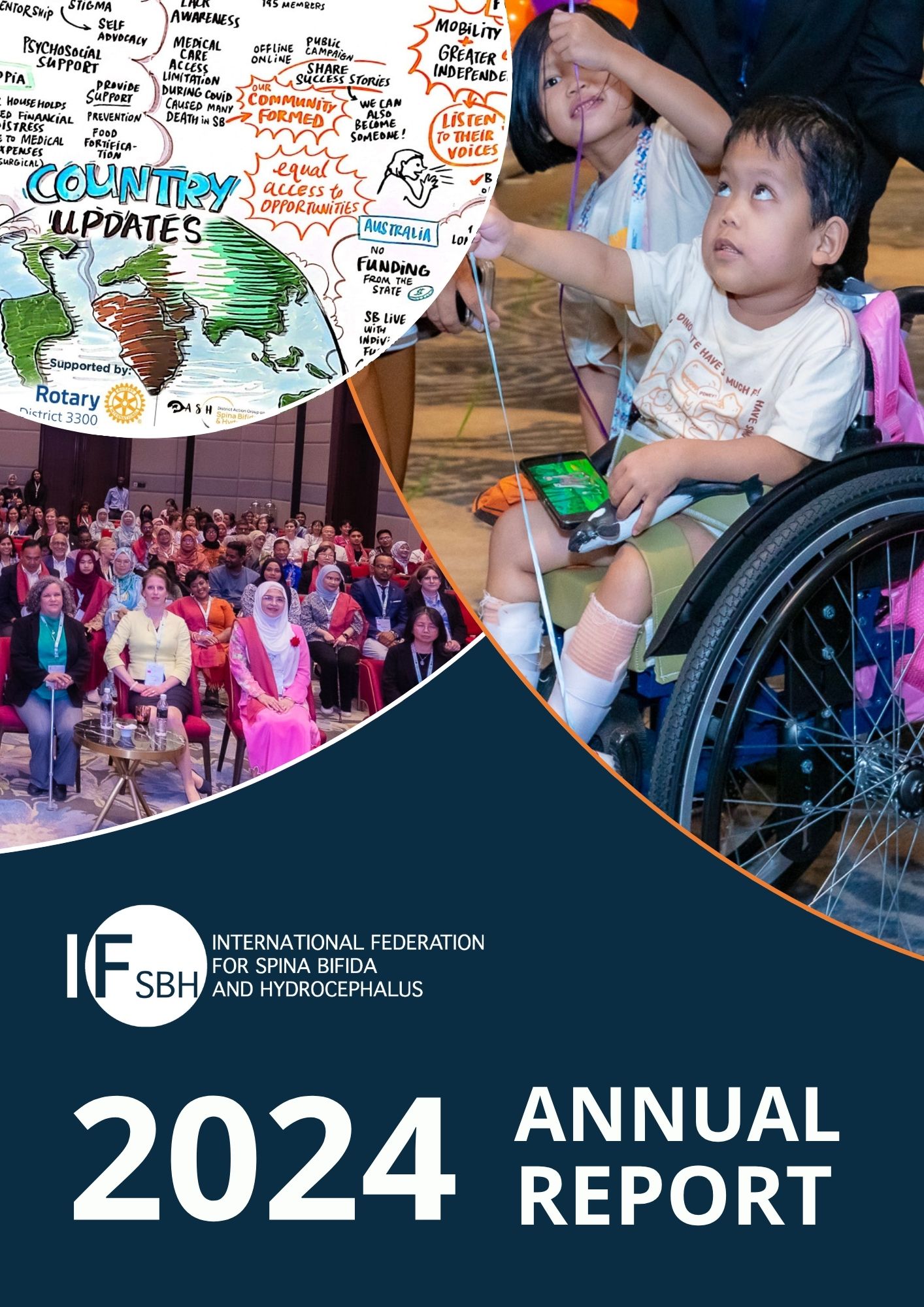This week the Global Disability Summit (GDS) takes place in Berlin Germany. The GDS represents a pivotal opportunity to advance disability inclusion on a global scale. The active involvement and participation of civil society, particularly Organisations of Persons with Disabilities (OPDs), is crucial to ensuring the Summit’s success.
Background to GDS
The Global Disability Summit (GDS) is a unique global mechanism that aims to improve the lives of persons with disabilities, especially from the Global South. It was created in 2017 to convene global, regional, and national stakeholders that share the same goal and vision for disability-inclusive development and humanitarian action. The summits aim to bridge the gap between two still-separate arenas: disability inclusion and development cooperation. The Global Disability Summit is a mechanism that goes beyond a two-day Summit every three years. It is a mechanism that entails continuous advocacy with global disability development stakeholders and mobilisation of the disability rights movement and its allies.
GDS Organisers
The International Disability Alliance (IDA), the Government of Germany, and the Government of Jordan will host the third Global Disability Summit (GDS). As a member organisation of IDA, IF has active participation in this meeting and will be working for a truly OPD-led GDS.
The Role of OPDs
Organisations of Persons with Disabilities (OPDs) are critical as they provide direct representation and advocacy for persons with disabilities. They ensure that the voices and experiences of persons with disabilities are at the forefront of discussions, decision-making, and policy formulation. OPDs bring authenticity and credibility to the dialogue, as they are driven by persons with disabilities themselves.
Global Commitments
The Global Disability Summit presents an extraordinary opportunity to further enhance the visibility of the Kuala Lumpur Declaration and the commitments it promotes. We have recognised that this globally significant event provides the ideal platform to amplify our message and reinforce the global commitment to preventing Neural Tube Defects and ensuring access to multidisciplinary care for individuals with Spina Bifida and Hydrocephalus.
Global Commitments by IF on behalf of the SBH Community
The International Federation for Spina Bifida and Hydrocephalus (IF) is committed to promoting and protecting the human rights of individuals with Spina Bifida and Hydrocephalus (SBH) in alignment with the UN Convention on the Rights of Persons with Disabilities (CRPD). Our mission is to improve their quality of life and reduce the prevalence of Neural Tube Defects (NTDs) and Hydrocephalus through primary prevention, awareness-raising, political advocacy, research, community building, and human rights education. Our commitments are specifically designed to enhance CRPD implementation and contribute to achieving Sustainable Development Goals (SDGs), particularly SDG 2 (ending malnutrition) and SDG 3 (ensuring health and well-being for all) and they focus on the necessity to adopt a human rights-based approach to the prevention of Neural Tube Defects (NTDs) and ensure continuous, coordinated, and inclusive multidisciplinary care for individuals living with SBH throughout all stages of life, from childhood to adulthood.
For the GDS25 IF commits to continuing its awareness-raising and advocacy efforts to ensure that all relevant stakeholders will be involved in pursuing the commitments outlined in the Kuala Lumpur Declaration, a historical document resulting from the 30th International Conference for Spina Bifida and Hydrocephalus. This event brought together experts, researchers, healthcare professionals, members of the SBH community, and their families to discuss solutions that can break down barriers and improve quality of life. Contributions for the Declaration were received from across the globe, representing a wide array of perspectives and shared experiences, culminating in the following commitments:
- To support and facilitate discussions with relevant ministries and agencies on mandatory fortification programs of vitamin B9 staple food, important for safe and effective primary prevention;
- To strengthen through early education and awareness creation, the importance of prevention and integrated multidisciplinary care crucial for the lifelong support of persons affected by SBH and their families;
- To encourage knowledge sharing and understanding on the role of genetics amongst healthcare professionals, persons with SBH and families in order to better facilitate the process of communication of diagnosis, genetic counselling and the opportunities for novel therapeutic interventions;
- To encourage and support healthcare and academic institutions to design guidelines and care protocols to establish adequate standards in the management of urological, surgical and rehabilitations care;
- To work alongside ministry of health to strengthen infrastructures to improve multidisciplinary health care, evidence-based management and collection of secure patient data such as through a patient registry;
- To encourage discussions around the coordination and continuity of healthcare for optimising transitioning from childhood to adulthood care to promote independent living.
Through these commitments, IF aims to drive substantial progress in ensuring equitable access to healthcare and full social inclusion for individuals with SBH worldwide.
Download the Kuala Lumpur Declaration and its co-signatories


